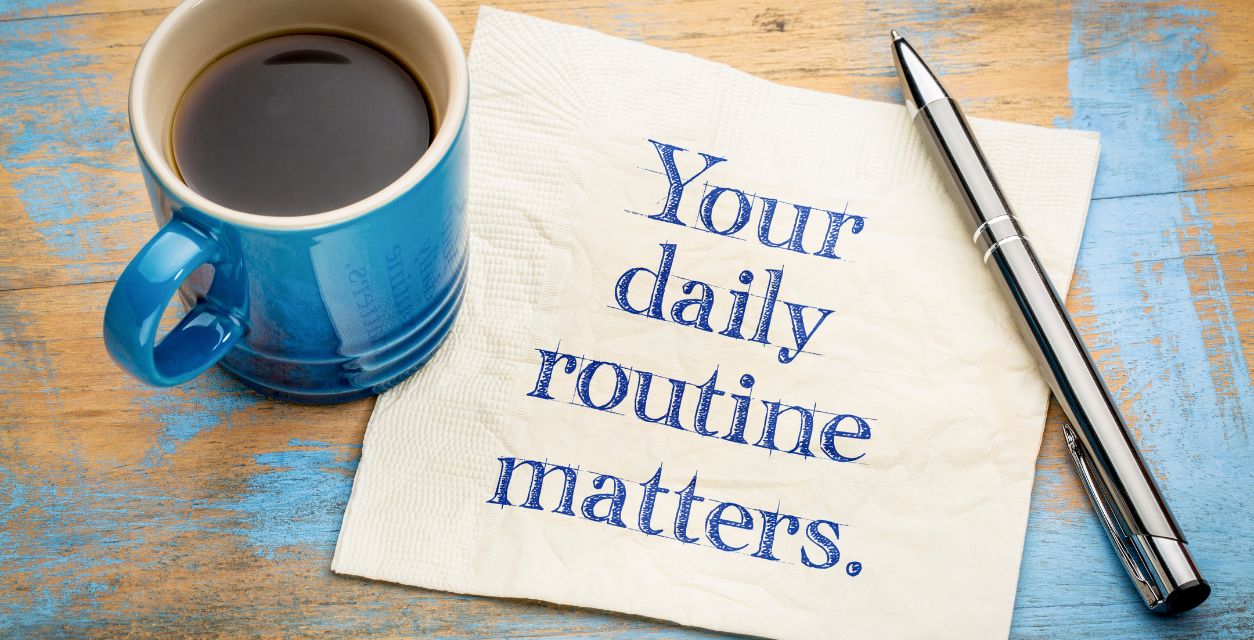Most of us know what we should do to improve our health. The problem is, it’s not always easy to get from here to there. Even the most well-intentioned patient will forget to take her daily medicine, vitamins or do her prescribed exercises. As a health professional, I’m also guilty of forgetting medicine or not doing the stretches my physical therapist suggested. So how do we move past the resolutions we make every year, to real life changes? We need to form new habits.
Habits
Habits start as seemingly easy goals. “I’m going to start eating two more fruits or vegetables every day.” Great goal and it works for the first week. Then there are a few days you’re too tired to prep that salad or go shopping when you run out of produce. Or you run out of bananas, your favorite fruit, so, oh well…
Researchers have found that unless a routine becomes automatic, attention and motivation can wane over time. Right. We’ve all been there.
Habits are defined as “actions that are triggered automatically in response to contextual cues that have been associated with their performance.” For example, most of us wash our hands (habit) after using the restroom (contextual cue). So, the trick to forming a habit is to link the new habit with something you already do regularly. If you are trying to drink more water and you often go into the break room, every time you go into the break room, drink a glass of water. If you always eat breakfast, the new habit might be, every morning when I eat breakfast I will prepare a fruit to go with it. Research says it takes about 10 weeks to form a habit. After that, even if you get out of the routine a bit, you will go right back to it.
As a dietitian, I’ve spent a fair amount of time talking to patients about medication adherence, which is one of the largest barriers to improving health. I’ve discussed various habit-forming ideas to help, such as, if you brush your teeth in the morning and night, train yourself to take your meds then. Another idea is to use all that technology at our fingertips. Yes, I use Alexa to remind myself to take my vitamin D. I also recommend that patients use it or their phone, to remind them of things they need to do often, like take their insulin.
When trying to add healthy routines, it helps to have life routines. With young children at home, most parents follow a bedtime. Having a meal and family routine helps children become successful in school and in life. But as kids leave the nest, some of those routines fall by the wayside. So as a start to adding healthy habits, perhaps look at general life habits such as sleep and eating routines.
More Tips:
- Decide on a goal that you would like to achieve for your health.
- Choose a simple action that will get you towards your goal which you can do on a daily basis.
- Plan when and where you will do your chosen action. Be consistent: choose a time and place that you encounter every day of the week.
- Every time you encounter that time and place, do the action.
- It helps to keep a running list of each day and check off when you complete your new habit. Positive reinforcement always helps!
Find more from Bridget here.












